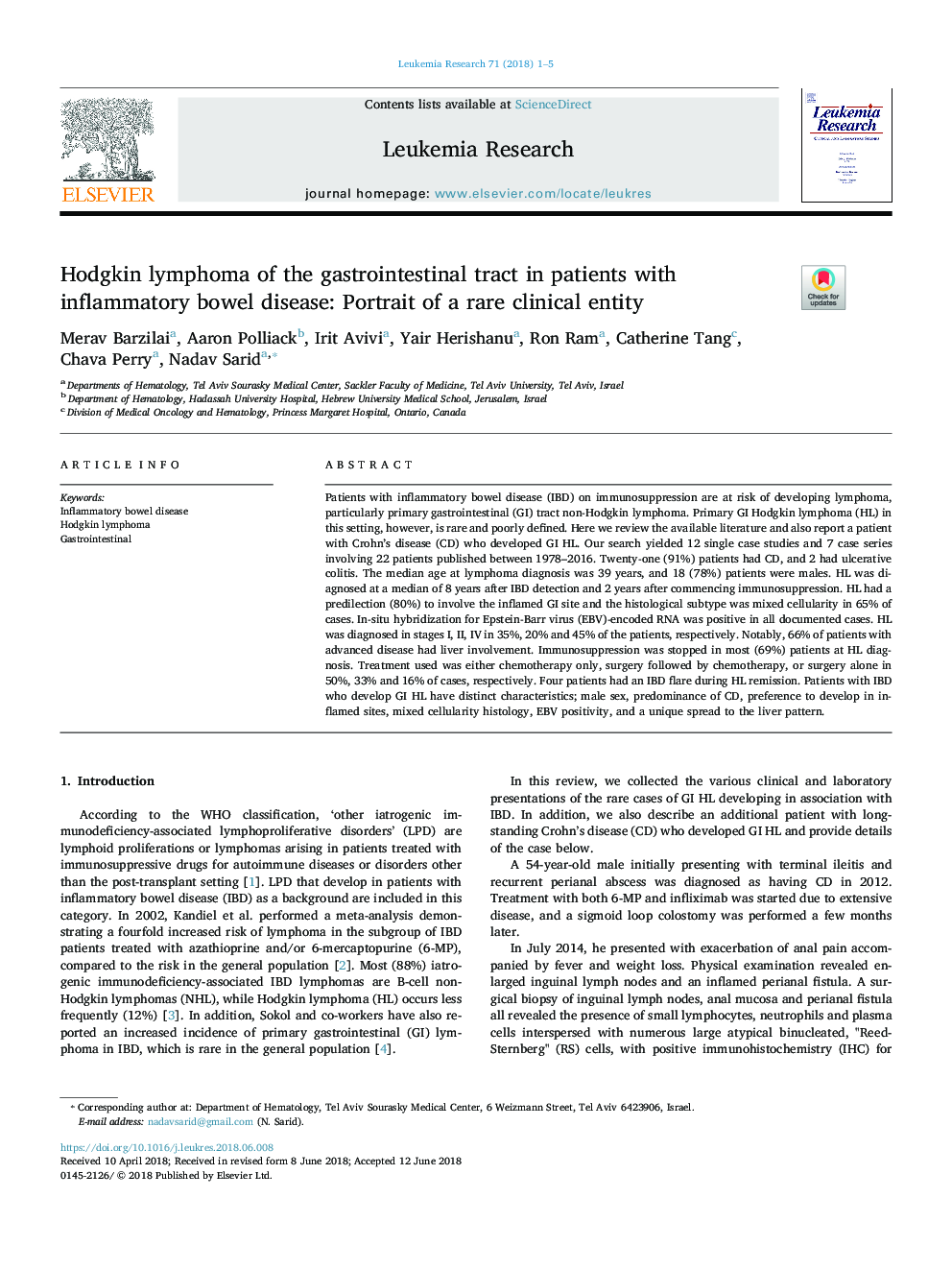| Article ID | Journal | Published Year | Pages | File Type |
|---|---|---|---|---|
| 8453269 | Leukemia Research | 2018 | 5 Pages |
Abstract
Patients with inflammatory bowel disease (IBD) on immunosuppression are at risk of developing lymphoma, particularly primary gastrointestinal (GI) tract non-Hodgkin lymphoma. Primary GI Hodgkin lymphoma (HL) in this setting, however, is rare and poorly defined. Here we review the available literature and also report a patient with Crohn's disease (CD) who developed GI HL. Our search yielded 12 single case studies and 7 case series involving 22 patients published between 1978-2016. Twenty-one (91%) patients had CD, and 2 had ulcerative colitis. The median age at lymphoma diagnosis was 39 years, and 18 (78%) patients were males. HL was diagnosed at a median of 8 years after IBD detection and 2 years after commencing immunosuppression. HL had a predilection (80%) to involve the inflamed GI site and the histological subtype was mixed cellularity in 65% of cases. In-situ hybridization for Epstein-Barr virus (EBV)-encoded RNA was positive in all documented cases. HL was diagnosed in stages I, II, IV in 35%, 20% and 45% of the patients, respectively. Notably, 66% of patients with advanced disease had liver involvement. Immunosuppression was stopped in most (69%) patients at HL diagnosis. Treatment used was either chemotherapy only, surgery followed by chemotherapy, or surgery alone in 50%, 33% and 16% of cases, respectively. Four patients had an IBD flare during HL remission. Patients with IBD who develop GI HL have distinct characteristics; male sex, predominance of CD, preference to develop in inflamed sites, mixed cellularity histology, EBV positivity, and a unique spread to the liver pattern.
Related Topics
Life Sciences
Biochemistry, Genetics and Molecular Biology
Cancer Research
Authors
Merav Barzilai, Aaron Polliack, Irit Avivi, Yair Herishanu, Ron Ram, Catherine Tang, Chava Perry, Nadav Sarid,
